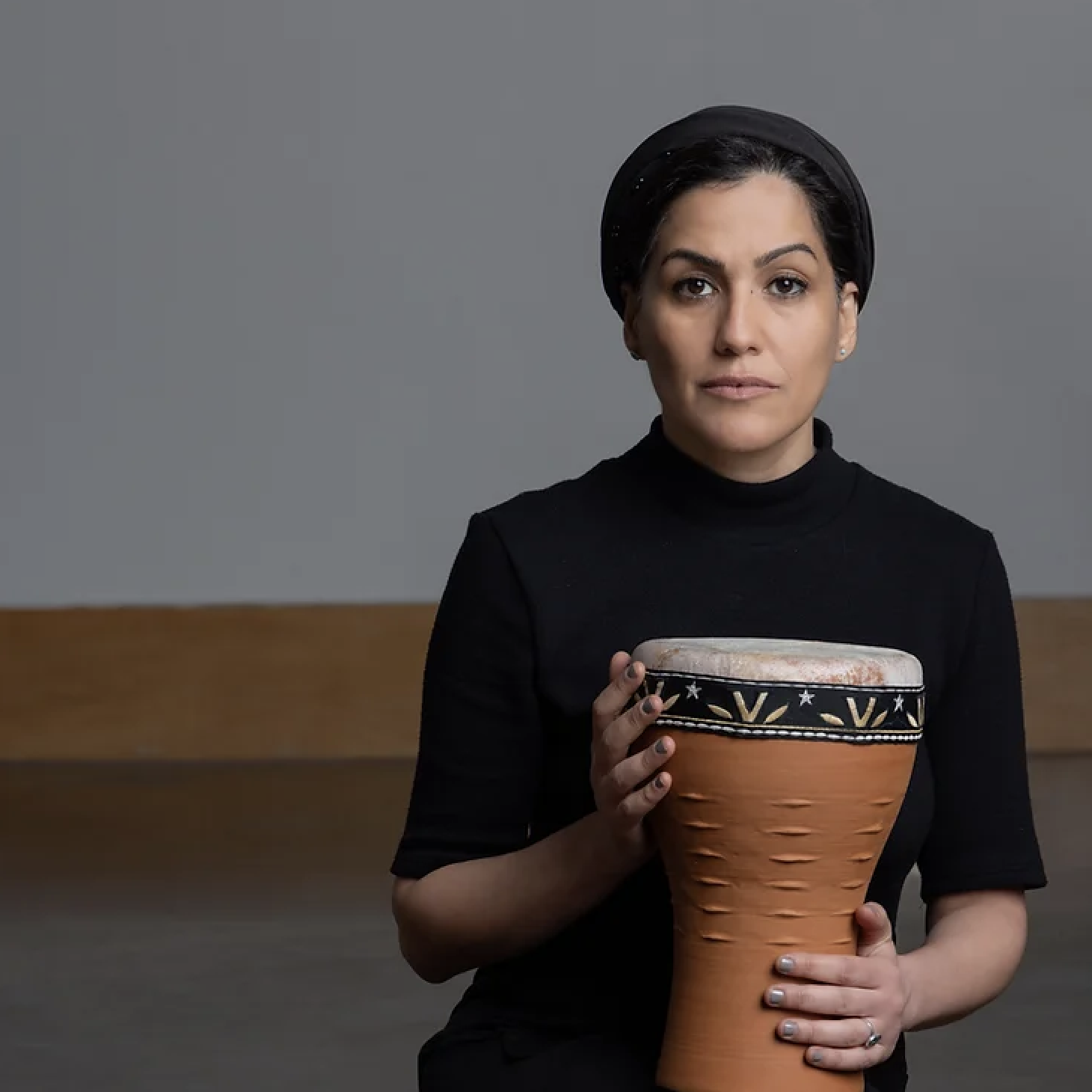RAHELEH FILSOOFI
BIOGRAPHY
Filsoofi, a collector of soil and sound, is an itinerant artist and feminist curator. Her work revolves around themes of movement, immigration, and social activism. Clay and sound serve as her primary expressive mediums, enabling her to create diverse narratives through multimedia installations and performances. Her art disrupts the borders that exist between us and seeks a more inclusive world, illuminating and challenging policies and politics.
Raheleh is the 2023 recipient of Joan Mitchell Fellowship award, the 2022 Winner of the1858 Contemporary Southern Art Award and the recipient of the 2021 Southern Prize Tennessee State Fellowship. She is an Assistant Professor of Ceramics in the Department of Art at Vanderbilt University and holds the secondary appointment at the Blair School of Music. She received her M.F.A. in Fine Arts from Florida Atlantic University and a B.F.A. in Ceramics from Al-Zahra University in Tehran, Iran.
ARTIST STATEMENT
Over the past decade, I have traversed across continents, navigated between cultures, and observed the effects of political and social stagnation and extremism associated with immigration policies and social injustice. As an Iranian-American woman, my own experience as an immigrant has deeply influenced my artistic philosophy, and I am driven to produce work that challenges current perspectives on politics, society, nature, and culture. To achieve this goal, I experiment with different aesthetic strategies and incorporate various media and materials with wide-ranging applications to my subject matter.
My multimedia installations and performances provide layered, multi-dimensional experiences aimed at reimagining a world in which the divisions between places and cultures collapse, coalesce, and invite the viewer to journey physically and psychically beyond their territorial entrapments.
Clay, sound and my body are the nexus from which most of my ideas emanate. They are cryptic, architectural, and the space where the holistic sensory experiences engender new and critical narratives and a world could be imagined where the divisions between places and cultures collapse, then coalesce, to invite to a journey beyond their territorial borders.

